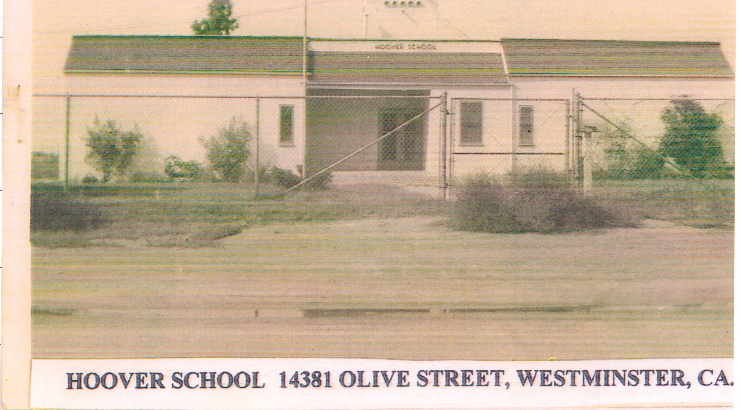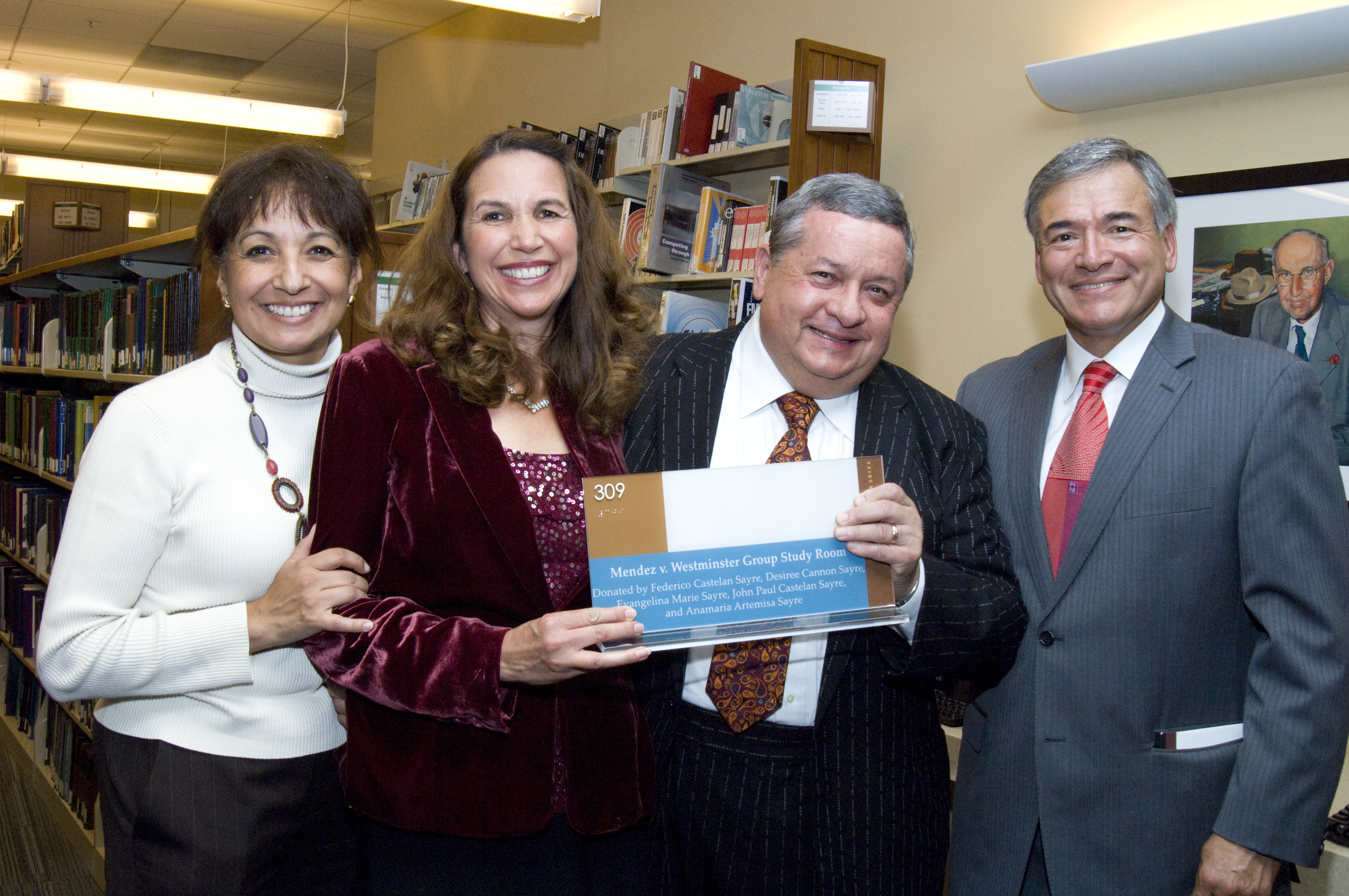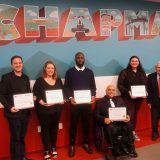
Google Doodle Uses Leatherby Libraries Materials Doodle honoring Felicitas Mendez uses images from the Frank Mt. Pleasant Library of Special Collections & Archives as resource
September 30, 2020
Many of us who spend a great deal of time on the internet – and who doesn’t, these days? – are familiar with Google Doodles, those pictures that take the place of the Google logo in honor of particular holidays, anniversaries, or just in celebration of specific individuals, places, or moments. On September 15, 2020, the Google Doodle celebrated Felicitas Mendez, the matriarch at the heart of the landmark Mendez, et al v. Westminster, et al federal case. In this case, several Orange County parents fought against the segregated schooling system in Orange County that forced Mexican Americans to attend “Mexican Schools.” This 1947 case predates the historic case of Brown v. Board of Education, which eradicated racial segregation in public schools in the United States. Five families – Mendez, Guzman, Palomino, Estrada, and Ramirez – fought against the school districts of Westminster, Garden Grove, Santa Ana, and El Modena. As a result of their bravery, Governor Earl Warren signed the Anderson Bill, revoking the statute that allowed segregated public schools in California.
The Leatherby Libraries has honored the Mendez v. Westminster case in a number of ways throughout the years. Since 2008, the Frank Mt. Pleasant Library of Special Collections & Archives has held the Mendez, et al v. Westminster, et al Archive, donated by several people involved with the case, primarily the Palomino family, one of the plaintiffs. The archive contains, among other items, images of the schools the students attended, pictures of the Palomino family, and minutes from a Santa Ana Board of Education meeting in 1946. In fact, the production team behind the mini-documentary about the making of this Doodle by artist Emily Barrera even used images from our archives for her research while creating this Doodle. Take a look at the video on the page for the Google Doodle to learn more about the creation of artwork, to hear from Felicitas herself, and to see the Leatherby Libraries credited on some of the images (around the 2:20 mark). Pictured in the cover image for this blog post is the Hoover School, which was the designated school for children of Hispanic descent in Westminster, CA. The Mendez children and others were forced to attend school there while the Mendez vs Westminster case was being decided.
In addition to the archives held in Special Collections, the Leatherby Libraries also has a group study room dedicated to the Mendez, et al v. Westminster, et al case, in which students can learn about the history of the landmark case. This room was dedicated in October of 2009, and members of the families involved in the case, as well as others, were present at the dedication. Sandra Robbie, Graduate Programs Specialist in the School of Pharmacy, met the Sayre family through her work directing the Emmy Award-winning PBS documentary film, Mendez vs. Westminster: For All the Children/Para Todos los Niños. Sandra has donated several Mendez-related items to Special Collections and has been pivotal in bringing other resources to the collection. Sandra was delighted to learn about the Google Doodle, and says, “From the moment I learned of Mendez v. Westminster, I knew this was a story that was meant for all of America to study and celebrate. Mendez reveals many important truths, including: We are all connected; Every voice matters; History takes time. I hope every student working to make social change can study Mendez to fuel their energy for the long game required to make lasting change. Thank you, Google! Our communities can view my Emmy-winning documentary Mendez v. Westminster: For All the Children for FREE at www.sandrarobbie.com.”

Guests of honor at the dedication event for the Mendez v. Westminster Group Study Room, including (l. to r.) Sandra Robbie, Desiree Sayre, Federico “Fred” Sayre, Hon. Frederick P. Aguirre.
Additionally, the city of Westminster has an upcoming virtual opening date of October 13th of their Mendez v. Westminster Freedom Trail. Mendez v. Westminster was a crucial part of local, state, and national history, and it is vital to honor that history in many ways – from the traditional archives to Google Doodles.

